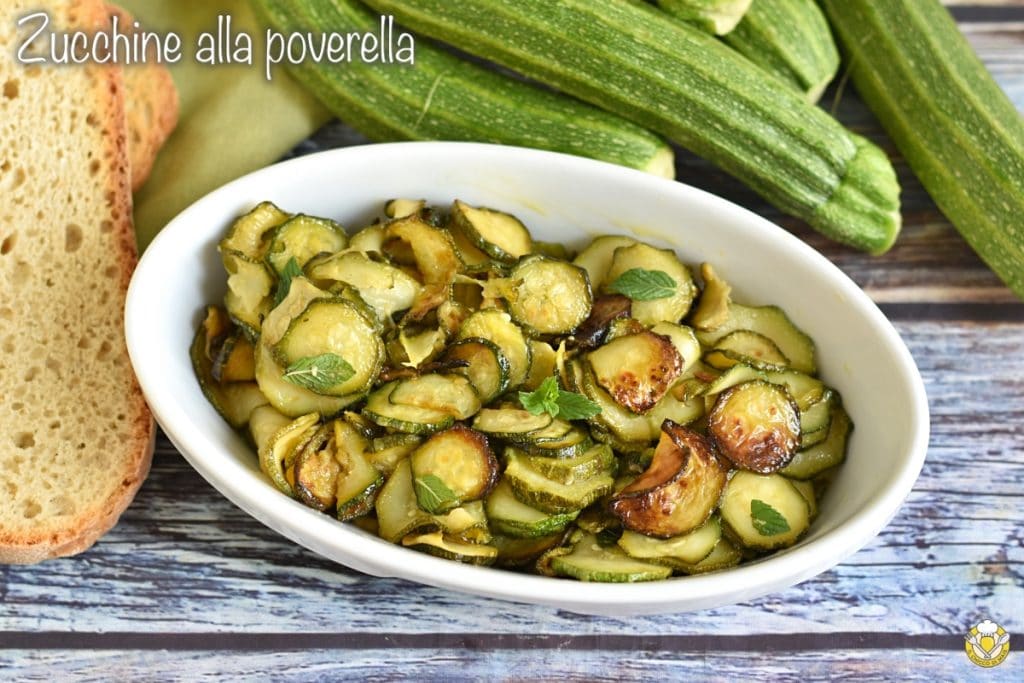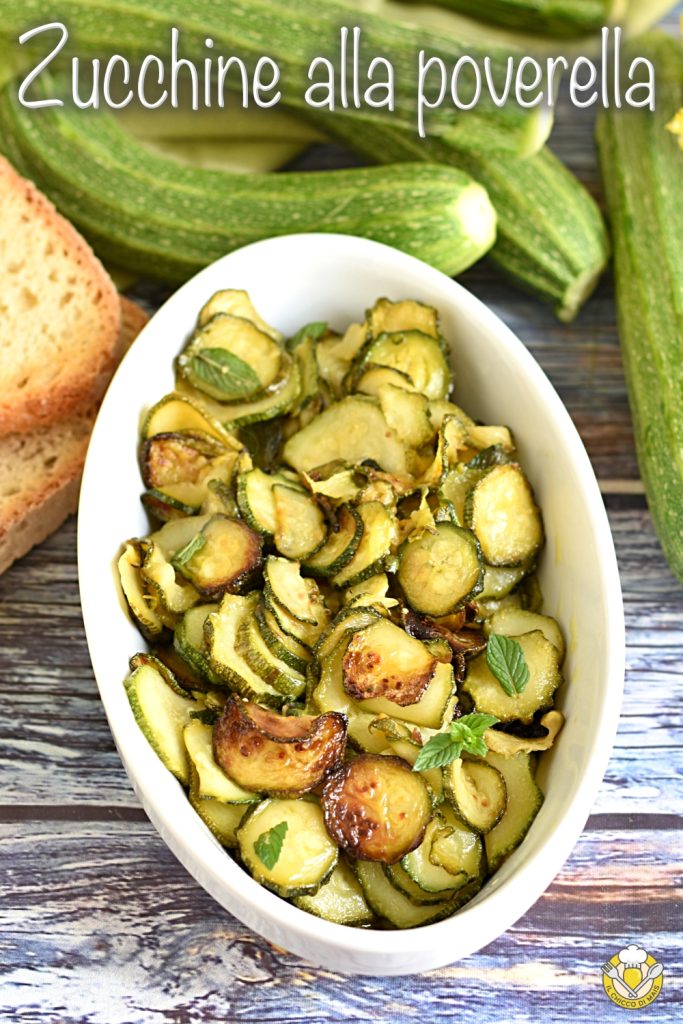Poor man’s zucchini is a traditional dish from the rural cuisine of Southern Italy, particularly from Puglia, a region often associated with seafood cuisine, but which boasts an equally rich and surprising rural tradition: for instance, the tiella of rice, potatoes, and artichokes, the rustic version of the one with mussels, or the tasty peppers scacchiata.
The name “poor man’s” refers to the humility of the ingredients: zucchini, vinegar, garlic, and mint. Few elements, inexpensive, yet capable of delivering a rich and aromatic flavor.
This traditional Apulian zucchini recipe has much in common with other similar regional preparations:
• Neapolitan zucchini alla scapece
• Roman zucchini concia
• Piedmont zucchini in carpione
However, all these versions involve deep frying, while Apulian poor man’s zucchini are cooked in a pan with little oil, like sautéed zucchini.
A notable detail of this recipe is the technique of “sun-drying“: according to the traditional recipe of poor man’s zucchini, once sliced, the zucchini should be dried in the sun to lose their water and prevent them from absorbing too much oil during cooking. If you can, give it a try! Alternatively, you can let them rest between two clean towels for a few hours.
Poor man’s zucchini is a simple and appetizing recipe, perfect for those looking for a tasty, genuine side dish that is excellent served cold.
You might also be interested in:

- Difficulty: Very Easy
- Cost: Very Cheap
- Rest time: 2 Hours
- Preparation time: 5 Minutes
- Portions: 4 People
- Cooking methods: Stove
- Cuisine: Italian Regional
- Region: Puglia
- Seasonality: Spring, Summer
- Energy 122.60 (Kcal)
- Carbohydrates 6.18 (g) of which sugars 0.08 (g)
- Proteins 5.27 (g)
- Fat 10.11 (g) of which saturated 1.49 (g)of which unsaturated 0.39 (g)
- Fibers 2.16 (g)
- Sodium 103.18 (mg)
Indicative values for a portion of 4 g processed in an automated way starting from the nutritional information available on the CREA* and FoodData Central** databases. It is not food and / or nutritional advice.
* CREATES Food and Nutrition Research Center: https://www.crea.gov.it/alimenti-e-nutrizione https://www.alimentinutrizione.it ** U.S. Department of Agriculture, Agricultural Research Service. FoodData Central, 2019. https://fdc.nal.usda.gov
Ingredients for Poor Man’s Zucchini
- 1.76 lbs zucchini
- 4 tbsp extra virgin olive oil
- 2 cloves garlic
- 2 tbsp white wine vinegar
- A few leaves mint
- to taste salt
Tools
- 1 Cutting Board
- 1 Mandoline
- 1 Pan large non-stick
- 2 Towels
How to Prepare Apulian Poor Man’s Zucchini
To prepare poor man’s zucchini, start by washing and drying the zucchini. Cut them into slices that are thin, but not too thin, otherwise, they will fall apart during cooking. I used a mandoline (1) to make it quicker and to get slices of uniform thickness. If you don’t have one, a sharp knife will do just fine, as long as you can get slices about 1/8 inch (2 mm) thick. As mentioned, the traditional recipe involves drying the zucchini in the sun, after arranging them on a table covered with a clean tablecloth; if you can’t do that, place the zucchini slices on a towel (3).

Cover them with another clean towel and let them rest for a couple of hours (4), if possible even overnight. The more water they lose, the less oil they will absorb. Take a large non-stick pan and pour in the oil. Also add the peeled garlic cloves (5). Let them sauté lightly, then add the zucchini (6).

Salt them and let them cook over medium heat for 8-10 minutes, uncovered but stirring often (7) so that they are evenly golden. When they are cooked, turn the heat to high and deglaze with the vinegar (8). Let it evaporate for just a few seconds, stirring well, then turn off the heat and add plenty of fresh, chopped mint (9).

Transfer the poor man’s zucchini to a bowl and let them cool completely before serving.

Storage
You can store poor man’s zucchini in the refrigerator for 3 or 4 days.
Tips and Variations
Poor man’s zucchini is excellent as an appetizer or side dish, but can also be an enticing idea for topping bruschetta that is different from the usual.

